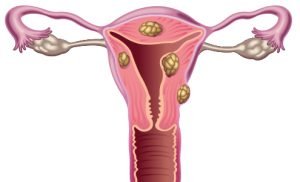Fibroids Treatment
- Details
- by: Leah Johnson
Don’t Waste Any More Time to Remove Fibroids

Many women may delay fibroid treatment if they feel they are able to manage the symptoms. There are many myths women will tell themselves, but as with all medical conditions, the earlier a condition is treated, the easier and more effective than treatment is likely to be. So, here are some facts to consider.
Fibroids Get Worse With Time
If left untreated, fibroids can continue to grow, both in size and number. As these tumors take over the uterus the symptoms will become worse. The fibroids pain will increase. The heavy bleeding will become heavier and it may be accompanied by severe cramping. As the fibroids grow the abdomen can swell. They can put additional pressure on the bladder resulting in incontinence or frequent urination. Ultimately, they can cause infertility. All of these symptoms can cause a strain on a woman’s life. The pain can prevent women from effective professional success. Also, if the patient is suffering from discomfort or embarrassment, she may not want to engage in an active social life with friends or family, and miss out on important experiences or relationships. Untreated fibroids can even cause issues in a relationship due to the symptoms and potential negative effects on fertility.
Fibroids Treatment & Recovery Are Not As Bad As You Think
Historically, invasive fibroid surgeries like hysterectomies, which involve the removal of the uterus and could require weeks of recovery. A myomectomy may attempt fibroid removal while keeping the uterus intact, however, this still requires invasive surgery.
Luckily, modern medical technological advances have resulted in non-surgical fibroid treatments that effectively remove fibroids with much faster recovery times than traditional surgeries.
Fibroid embolization is one of the most innovative fibroid treatments available for women today. This minimally invasive procedure is performed in a surgical setting under light sedation to minimize any discomfort. A radiologist will use x-rays to guide a catheter to the uterine artery and release embolic agents to block the blood flow to the fibroids. When deprived of blood and the essential oxygen and nutrients it carries through the body, the fibroids shrink. The uterus itself stays healthy and whole. Most patients stay overnight for observation and are back to normal activities within five days. Some of the benefits of this treatment include that only a small incision is needed to insert the catheter. Recovery is even quicker than laparoscopic surgeries and general anesthesia is not necessary.
If you are showing signs of fibroid symptoms and think you have fibroids, schedule an appointment for a professional diagnosis. One of our fibroid surgeons will talk to you about your symptoms and perform a pelvic exam. We may order further testing including an imaging procedure such as an ultrasound. If uterine fibroids are diagnosed we will discuss the best fibroid treatment for you. Here at the Fibroid Treatment Collective, we offer free consultations in-office or over the phone. Feel free to contact us for more information. To learn more about fibroids, visit our homepage.

